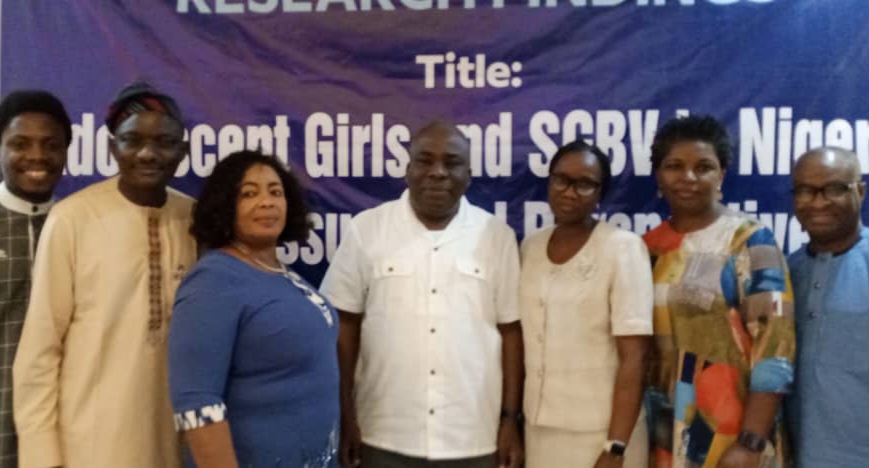 A new research by a Doctor of Philosophy student, Olutoyin Ikuteyijo, has called for the need to equip Primary Healthcare Centres (PHCs) with gender units to address issues of Sexual and Gender-based Violence.
A new research by a Doctor of Philosophy student, Olutoyin Ikuteyijo, has called for the need to equip Primary Healthcare Centres (PHCs) with gender units to address issues of Sexual and Gender-based Violence.
[ad]
The research focused on adolescents living in slums in Agege area of Lagos State and Ibadan Southeast Local Council of Oyo State.
The public presentation of the findings held at Airport Hotel, Ikeja, had in attendance research supervisors from the Swiss Tropical and Public Health Institute at the University of Basel, Switzerland, Sonja Merten and Prof. Nicole Hench-Probst; and Prof. Akanni Akinyemi from Obafemi Awolowo University, Ile Ife.
Various stakeholders also present included adolescent girls and young women, community leaders, religious leaders, Non-Governmental Organisations (NGOs), Civil Society Organisations (CSOs), representatives from the Ministry of Women Affairs, Ministry of Health, Ministry of Justice, Civil Defence, the Nigeria Police Force and the family court.
According to Ikuteyijo, the research revealed that globally, violence was the leading cause of death among adolescents; hence there is a need for adequate healthcare policies especially at PHCs to address SGBV survivors.
She stated that in Nigeria, the challenges faced by adolescent girls were exacerbated by their gender and the patriarchal environment in which they grow up.
“These girls are subjected to various forms of sexual and gender-based violence, including intimate partner violence, sexual abuse, domestic violence, rape, free and forced sex, and unprotected sex,” she said.
Factors such as low socio-economic status, education, social status, economic deprivation and inability to meet daily needs were found to predict the experience of SGBV.
On the experience and survival of adolescent girls and stakeholders’ involvement in supporting the survival of SGBV among young people, she said: “These young people cannot speak for themselves unlike adults that can speak for themselves. The experience of adolescent girls as a whole has increased over the years. The current experience shows that even the perpetrators of sexual violence on adolescent girls are more interested in younger adolescents from the age of 14 and below.”
Ikuteyijo proposed the need to address structural barriers in the referral system and called for collaboration between the legal system and various stakeholders to ensure a more efficient response to SGBV cases.
Deputy Vice-Chancellor of Obafemi Awolowo University, Akinyemi, said that tackling SGBV requires the effort of every individual, noting that citizens shouldn’t be quick to blame the government for not being proactive to SGBV issues.
“The culture of silence is one of the biggest issues we have in our society, but with this forum, participants have learnt the appropriate place to go and steps to take,” he said.
Reproductive Health Coordinator, Lagos State Ministry of Health, Dr. Victoria Omoera, stressed on the importance of training of personnel in PHCs, noting that it is important for staff to be educated about the laws and policies that revolve around SGBV.
Stakeholders at the event also highlighted the lack of support services available to survivors of SGBV, attributing this to insufficient funding for existing services, lengthy processes for justice and a lack of SGBV policy awareness among young people.
[ad]


